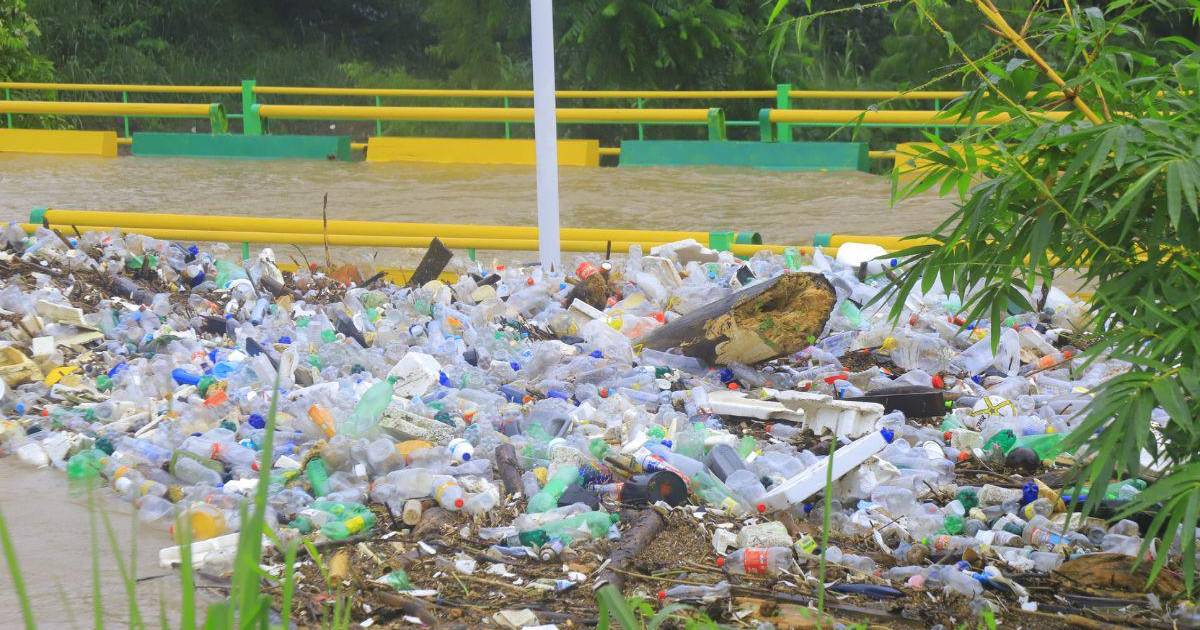As a teacher, I am ashamed that both the governor and the general director of Culture and Education of the province of Buenos Aires promote books with inappropriate content: sexual and pornographic, stating that this material works as a tool, since they can become “in a pedagogical scene” in the classroom to “talk things differently.” The book Cometierra, inappropriate in content and in the way it narrates the events, although it is not the only one that the province distributes to schools, as teaching material. How do these officials expect students to learn respect when the Education area is promoting vulgar and offensive language (I must remember that the vocabulary used in those books is far from being excellent), and in addition to lowering the level, they Is it initiating perversion and sexual abuse, even forcing teachers who do not agree with this way of educating to go against its principles? Students do not understand a text (thanks to the reforms promoted by ignorant people that have passed through this portfolio for several decades), but instead of encouraging comprehensive reading, they are introduced into an area that is difficult to navigate, probably to cover up other business. How can these people be representing a society that still strives for education as an influential factor in the progress of people? Education enriches culture, spirit, values and everything that characterizes us as human beings. Those in charge of this portfolio should be selected for suitability, aptitude and moral values, not for ideology or affinity with the government in power.
Silvia Cilia
DAYS 12,942,302
Uruguay: an example of republican democracy in the world. A different country. His history proves it. He always had “normal” presidents, where the country came first before everything. Healthy envy “from the other side of the river.”
Pedro César Matteucci
DAYS 5,506,508
I address President Javier Milei with great respect for the investiture that he represents, but also with immense pain and with a wounded heart again for something expressed by you in relation to a tribute to the victims of terrorism in the 1970s and to the victims of terrorism of the attacks on the AMIA and the Israeli embassy carried out by Dr. Victoria Villarruel. At that event, the vice president asked that those responsible for those attacks not yet convicted receive the punishment they deserve. In Congress there was a standing ovation and we heard the cries of the relatives expressing our consensus in demanding justice for our innocent victim relatives. The next day, when the press asked you for your opinion on Dr. Villarruel’s act, you responded that the issue was not on your agenda.
Mr. President, among those victims is my daughter Laura Ferrari, a student of Economic Sciences at the University of Belgrano. Laura was murdered on September 8, 1975 by a car bomb explosion. The right to justice is also for them. Although they are no longer here, their relatives are there. I can assure you that if I am still standing and have reached the age of 95, it is because since that unpunished crime in Montoneros I have been fueled by a thirst for justice. After 12 years of Kirchnerism, a time in which only one of the sides of Argentine history was made visible, I believe that the rulers’ agendas should no longer be incomplete, like the one you claim. Both sides of the coin must be reflected. Especially when victims like Laura did not belong to any political group. She was only studying at the UB and was unlucky to be in the wrong place at the wrong time. In the years in which you walked through the classrooms and hallways of that university until you graduated, were you ever informed as a student about the Montonero terrorist attack that occurred there? Well, I know not, that it was an order – explicit or tacit – from the rector Avelino Porto to hide what happened, at least until the moment when the UB placed a plaque to commemorate my daughter and an employee, both killed in the attack. By the way, I found out about the plaque by chance, unfortunately not through the authorities, as they should have proceeded. How sad it makes me that you have not paid due attention to the rights of all those victims! I am and always was a pacifist. I never accepted the violence of torture and disappearances, because for me that was not justice. Justice is always in the hands of judges and courts. Laura did not have justice, because no one was ever seated in the dock to be sentenced.
I have lived in this blessed country for 72 years, where I raised a beautiful and happy family until 1975, the year in which everything changed: Laura’s murder made my husband sick; My son who was not self-sufficient due to a disability also suffered the loss of the sister he needed so much; Not to mention my mother’s heart. My state of health has deteriorated to the maximum. Over the years I wrote letters to the authorities of each shift. In 2000 I had financial compensation, but it was quickly devalued and was of no help to me. Although I am alone, at 95 years old, I am not looking for money but for justice. I hope that from my words you can reflect on what will be included in your agenda from now on.
Lorenza Fia de Ferrari
I would like to refer to the attack that occurred on a golf course in Pinamar. Is “the rugby player”, the “golfer”, the “footballer” or simply any citizen who lives in your country, plays a sport and commits an atrocious act more serious? There are countless times that people who practice a sport in a completely healthy way are put under the same umbrella. Isn’t it time to define people as criminals without tarnishing any sport they practice? We live in a sad reality, not because of sport, but socially.
Constantino Coutris
DAYS 17,030,954
Pablo Moyano after resigning from the CGT triumvirate: “There are some who believe that we must continue dialogue with the Government”
“It’s true, they didn’t understand anything that happened these 11 months, they were used to huge inflation and corruption” – Ivan Omedo
“That is why unions were created, to dialogue for the well-being of their representatives, not for the enrichment of their delegates” – Gladys Beatriz Arancibia Anzorena
Texts intended for this section must not exceed 1000 characters with spaces. The sender’s name, signature, address, telephone number and document number must be included. For reasons of space and style, LA NACION may select the material and edit it. Messages should be sent to: [email protected] or to the address: Av. Del Libertador 101, Vicente López (B1638BEA)
According to the criteria of
**How can media outlets, like World Today News, ensure they are presenting information in a way that is both comprehensive and sensitive to the diverse experiences of those impacted by the issues discussed, such as the families of terrorism victims or students affected by educational policies?**
## Interview following World Today News
This interview will explore reactions to recent events tackled by World Today News, specifically focusing on elitist book distribution, the president’s response to terrorism victims, and the complexities of generalizing individuals according to their hobbies.
**Section 1: Controversial Educational Materials**
**Guest 1: Silvia Cilia** – Teacher and author of the critical letter
* **Interviewer:** Silvia, your letter has sparked a lot of discussion about elitist book distribution in Buenos Aires schools. Can you elaborate on why you believe these books are inappropriate and what specific concerns you have about their use in the classroom?
* **Interviewer:** You mention a ”different agenda” being pushed through education reform. What do you see as the desired outcome of this agenda and how do you believe it impacts students and their understanding of the world?
* **Interviewer:** Some argue access to diverse perspectives is crucial in education, even if they are challenging. How would you suggest handling potentially sensitive material in the classroom to ensure both learning and respect for differing viewpoints?
**Section 2: Victims of Violence and Presidential Responses**
**Guest 2: Lorenza Fia de Ferrari** - Mother of a terrorism victim
* **Interviewer:** Lorenza, your powerful letter addressed President Milei’s response to the tribute honoring victims of terrorism. Can you elaborate on why his stance on this issue was so hurtful to you specifically?
* **Interviewer:** You mentioned feeling like your daughter’s story and others like hers were being overlooked. What kind of acknowledgment or action would you like to see from government officials to ensure all victims are remembered and justice is sought?
* **Interviewer:** With the passage of time, how can societies effectively confront legacies of violence while still striving for peaceful futures?
**Section 3: Generalizing Individuals and Media Reporting**
**Guest 3: Constantino Coutris** –
* **Interviewer:** Constantino, your letter raises an important point about how individuals’ actions are often linked to their hobbies or affiliations in the media. How can we avoid generalizations and ensure individuals are held accountable for their actions without stigmatizing entire groups?
* **Interviewer:** What role do you think the media plays in perpetuating these harmful stereotypes, and how could reporting practices be improved to promote a more nuanced understanding?
* **Interviewer:** In your opinion, what responsibility do individuals have to challenge these generalizations and promote a more accurate and equitable representation of themselves and their communities?
**Closing:**
* **Interviewer:** Thank you all for sharing your valuable perspectives. It’s clear that these are complex issues demanding thoughtful conversation and critical reflection.
This interview format aims to provide a platform for diverse voices and encourage critical thinking around the pressing topics highlighted in World Today News.


